Detroit's Neighborhoods: The Heart of the City's Comeback
Detroit's 139 square miles of land contains more than 200 neighborhoods, each averaging about two-thirds of a square mile (which adds up to more than 300 football fields). But what is a neighborhood, and why is Detroit so focused on them?
The 21st century's "downtown resurgence" provided a boost for urban cores, but created economic cleavages. Downtown developers got incentives while neighborhoods (often predominantly Black and Latino or Hispanic) continued to lack basic amenities like grocery stores. Balancing these priorities is difficult for cash-strapped municipalities.
Detroit's strategy to transform itself by prioritizing neighborhoods:
- Create a Department of Neighborhoods: Give residents and block clubs a point of contact within City Government.
- Beautify Communities: Enable residents to volunteer and collaborate to improve their neighborhoods.
- Large-scale Projects that Beautify: Connect the neighborhoods with the Joe Louis Greenway, streetscapes, programs and activities.
Detroit's DEPARTMENT OF NEIGHBORHOODS (DON) Central to its comeback
Mike Duggan heard about the importance of neighborhoods firsthand during his original campaign for Mayor. And, by the time of his first State of the City address in 2014, he and the City Council had already launched the Department of Neighborhoods (DON).
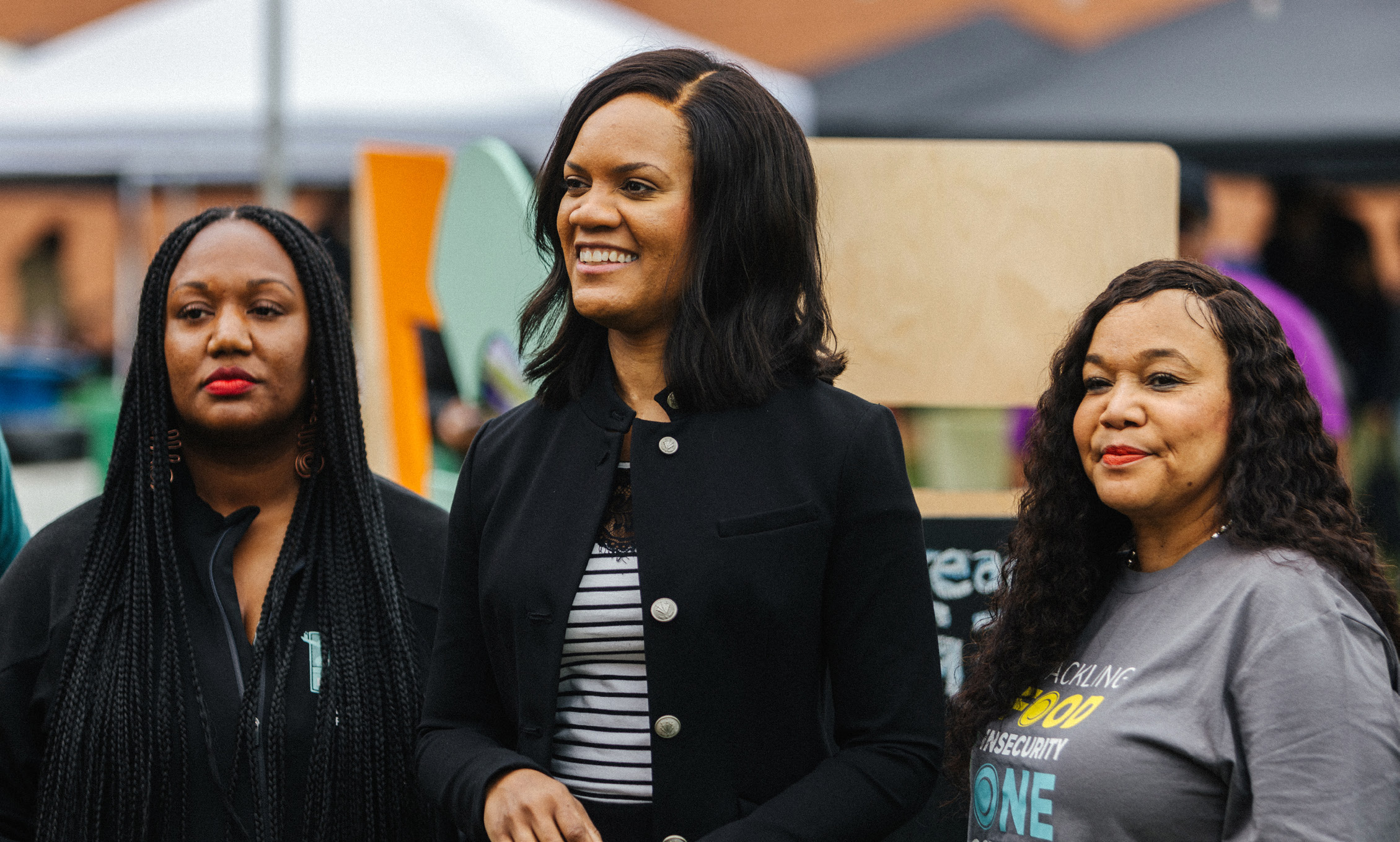
Council Member Latisha Johnson joins neighbors from the Gratiot/7Mile neighborhoods as they celebrate their community's transformation at the G7 Better Block Event. The initiative invigorates the area and showcase its potential as a vibrant and high-traffic corridor.
"The DON streamlines and facilitates communication between the city government and those who live here", says Department of Neighborhoods Director Erinn Harris. Each district has its own district manager and deputy manager, each with a cellphone number to call to cut through the red tape. Find your district's contact info at https://detroitmi.gov/departments/department-neighborhoods. Even when the DON isn't the department in charge of a specific neighborhood issue, it can get word to the right people.
"Our department is resident-focused," said Harris. "We're here to make sure our residents have a great quality of life in their neighborhoods." Residents "bring issues to our attention so we can help improve their neighborhood."
The Department of Neighborhoods directly connects the City of Detroit with block clubs, community groups, businesses, faith leaders, school leaders and residents. "The DON has taken thousands of calls about the neighborhoods," Harris said.
"Initially," Harris said, "we were put in place to help out with blight-related issues—the abandoned house next door, illegal dumping, things of that nature. People will call us to get answers when they can't seem to get through the city bureaucracy."
Harris says the Department of Neighborhoods helped figure out which houses needed to be demolished based on requests from residents. DON doesn't just field calls. It also canvasses to communicate important city information, including making phone calls, sending emails and knocking on doors. Because that requires the Department of Neighborhoods to work with other departments, as well as block clubs and neighborhood associations, everyone now comes to DON for outreach when it comes to initiatives and events around the city.
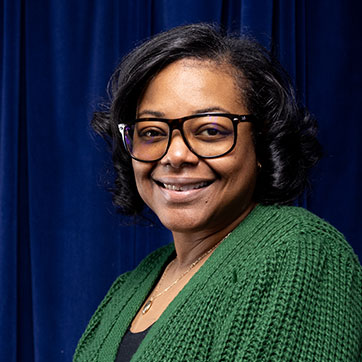
THE IMPORTANCE OF BLOCK CLUBS
One sign of a healthy, thriving and committed neighborhood is how active its residents are, usually with block clubs. Since 2014, Detroit's block clubs have flourished. Between January and December of that year, 175 new block clubs launched. By June 2025, more than 650 are on the official list.
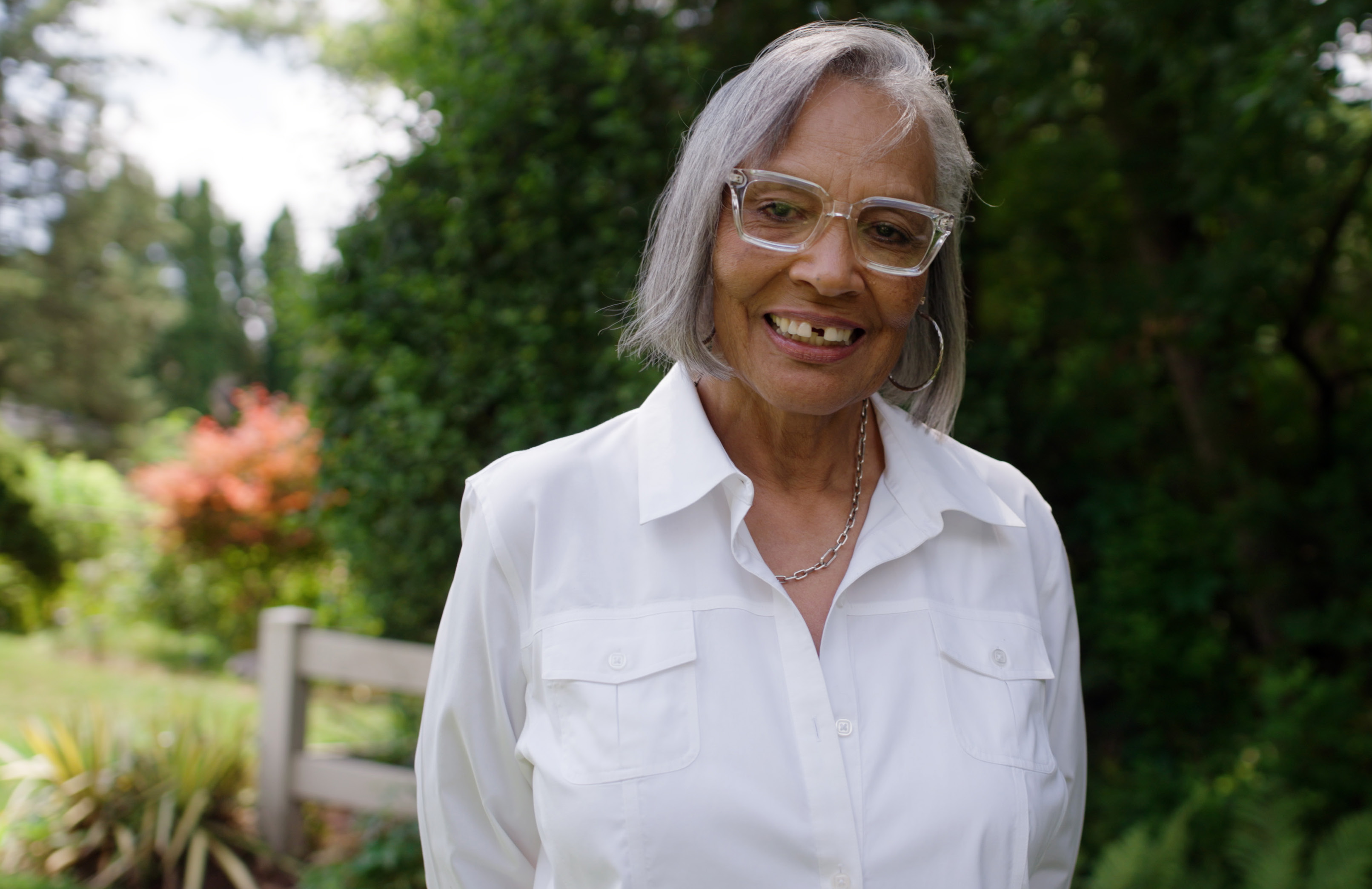
Jetty Wells is president of the CNBC (Cherokee, Norfolk, Berg, and Chippwea) Block Club, one of more than 650 registered block clubs that play a crucial role in reducing blight and increasing resident engagement across the city's neighborhoods.
Block clubs can be formed by the residents of a street or a larger area (such as the Midwest Civic Council of Block Clubs) to increase the power of their voice when dealing with the local and federal governments.
DON's Director Erinn Harris explained, "Our district and deputy managers assist in forming block clubs, drive community engagement in planning projects, address complaints and educate residents on City programs and policies."
DON builds relationships with these block clubs by attending their monthly meetings or video conferencing. The club presidents can also call Harris and her deputy directly and vice versa.
While block clubs have long existed in Detroit and other urban areas as a way of helping southern Blacks acclimate during the Great Migration (1916 to 1970), in Detroit, they picked up steam during the social upheaval of the 1960s to make residents of all ages more aware of the power of collective action.
For example, at one time the 60-years-plus Harding Friendship Block Club had three branches, according to resident member Willie Mae Gaskin, including for teens and preteens.
Even older, the North Rosedale Park Civic Association was founded in 1924. Its members pay dues and it has an elected (volunteer) board of directors. It maintains park facilities for community use—including the 1939 North Rosedale Community House, which can be rented—and enforces building restrictions and ordinances within North Rosedale.
The City of Detroit has a list of block clubs and contact information on The Neighborhoods website under each district, from District 1 through District 7.
To start your own block club, see the DON's Block Club Starter Kit and the Block Club pre-registration form.
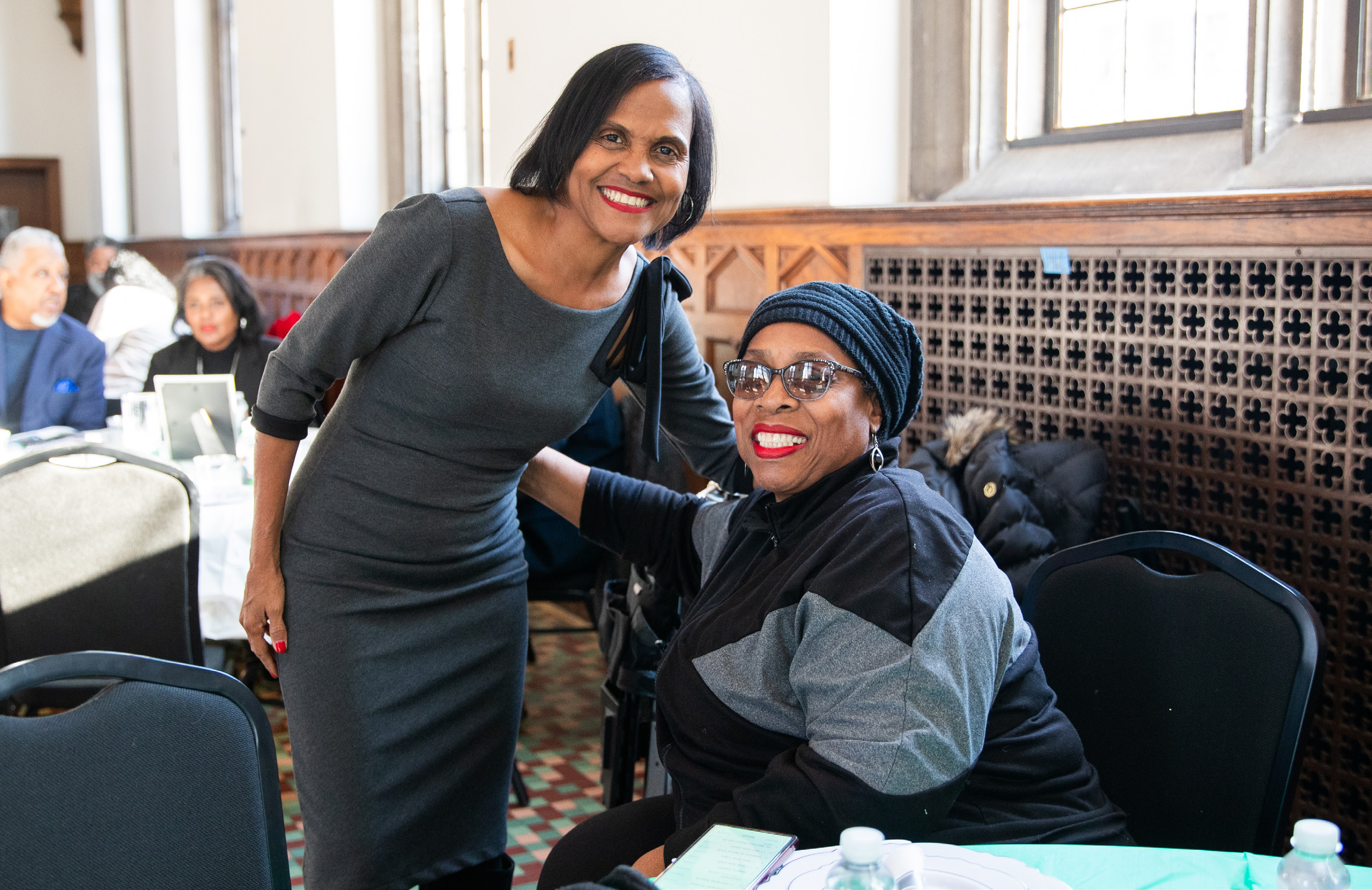
City Council member and lifelong Detroiter, Angela Whitfield Calloway enjoys a festive luncheon at the Northwest Activities Recreation Center to recognize the over 500 block clubs and their leaders.
BEAUTIFYING THE NEIGHBORHOODS
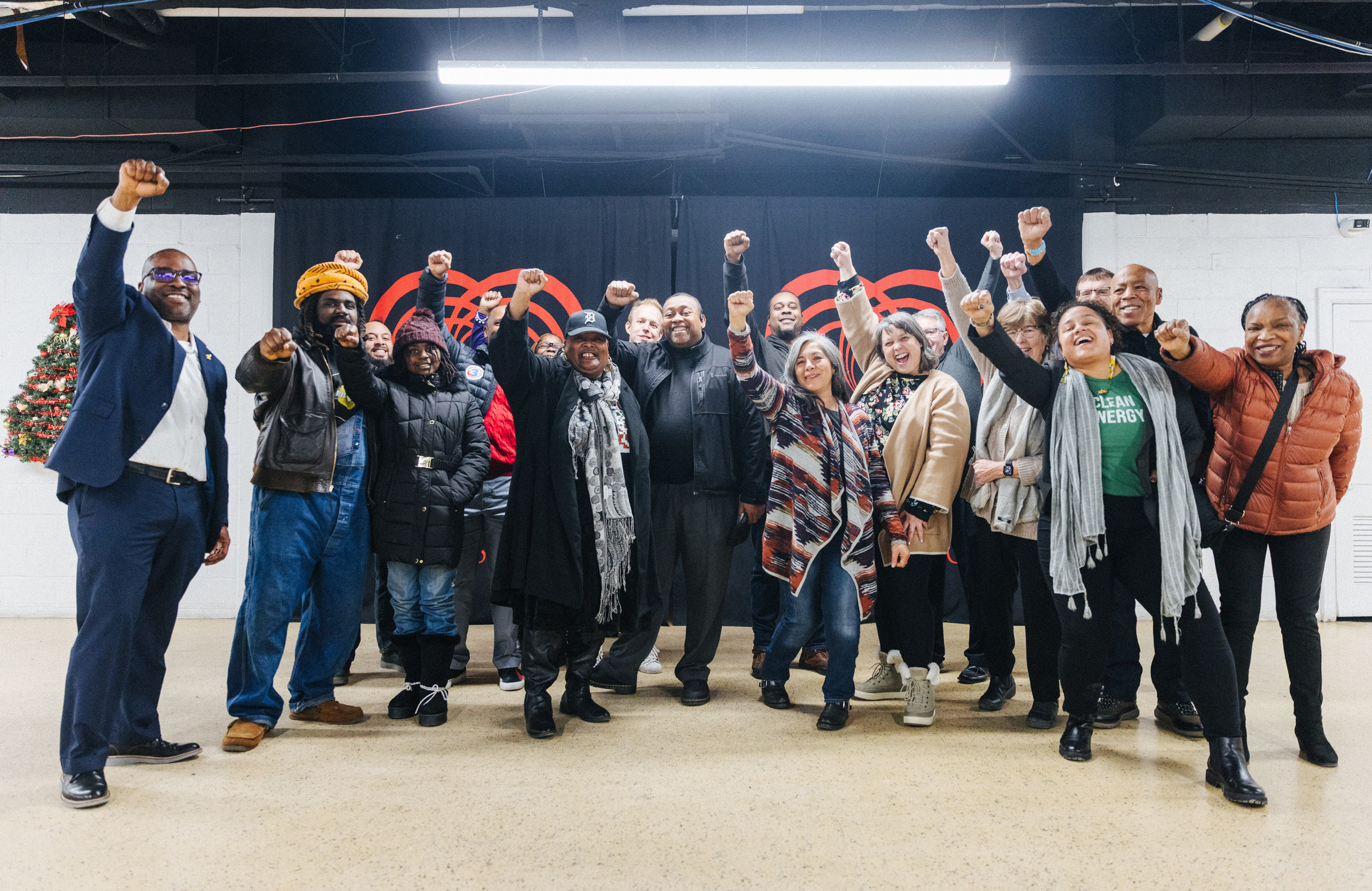
"We have achieved real success in our neighborhoods because of the partnership between City Hall, City Council and our residents. Block clubs, churches, businesses—all play a part." Raymond Solomon II, Chief of Staff, City of Detroit
MOTOR CITY MAKEOVER 365
One of the Department of Neighborhoods' major projects since it began in 2014 is Motor City Makeover 365, a citywide volunteer beautification initiative the first three weekends in May.
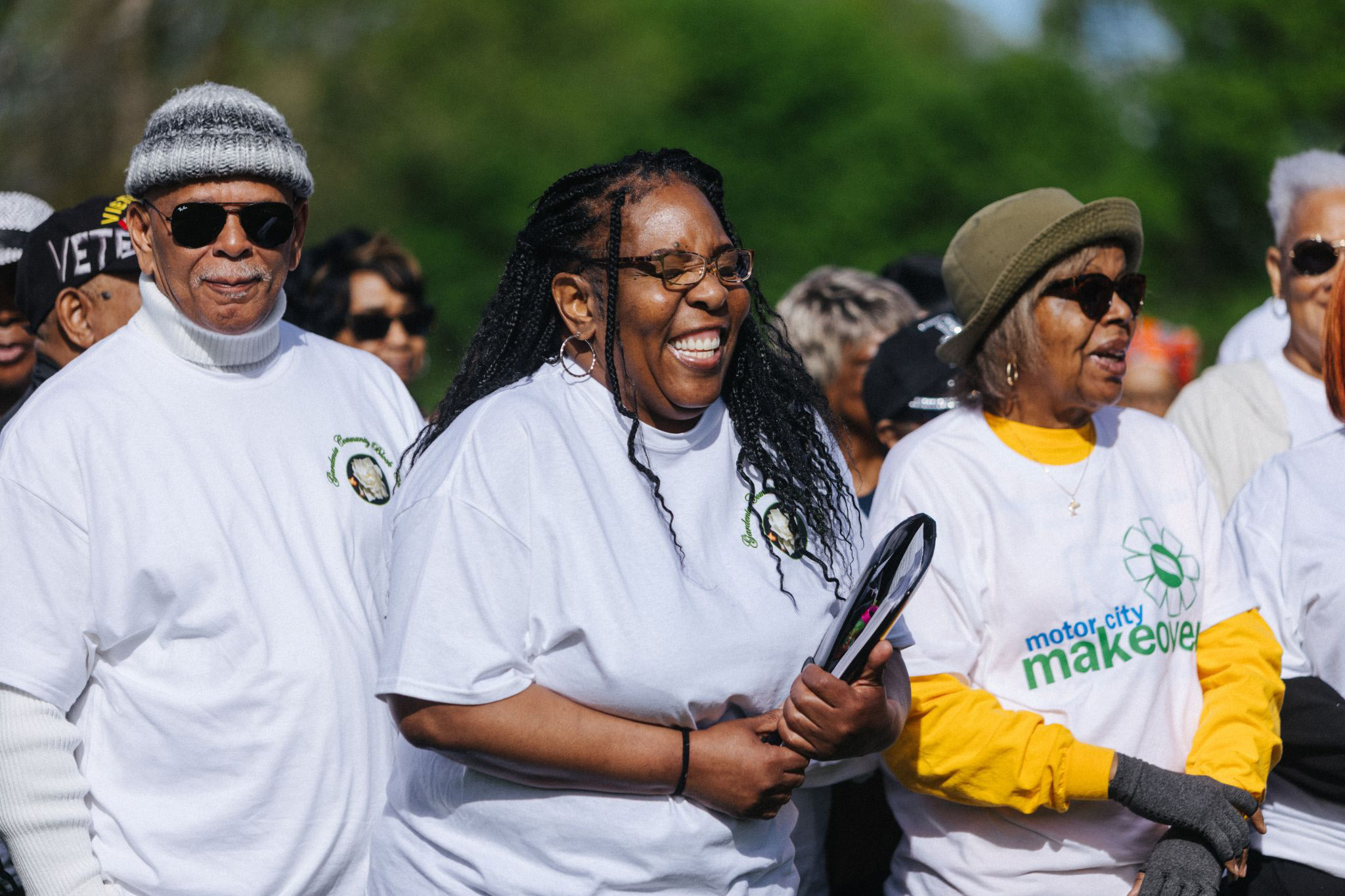
Detroit neighbors participate in Motor City Makeover, the city's annual cleanup event held every May since 1990. Over 600 community groups work together to remove litter. Cumulatively, they have planted more than 90,000 flowers, distributed over 500 trees, and maintained vacant lots across all seven city council districts.
The program, more than 30 years old, targets about 600 projects annually, from neighborhoods, parks and playgrounds to areas around businesses, schools and places of worship. The City provides some basic supplies for beautification, including litter bags, gloves and flowers.
NEIGHBORHOOD BEAUTIFICATION PROGRAM GRANTS
The DON also helps improve neighborhoods year-round through Neighborhood Beautification Program (NBP) grants, managed in partnership with the Wayne Metropolitan Community Action Agency and open to Detroit-based neighborhood associations, nonprofits and faith-based organizations.
NBP grants $500 to $15,000 for community gardens and other public space improvements.
Established by Detroit City Council President Mary Sheffield in 2022 and initially funded by $4.75 million from the Neighborhood Improvement Fund and the American Rescue Plan Act, the popular program will continue using resources from the general fund. After four rounds, 157 organizations have received more than $2.2 million.
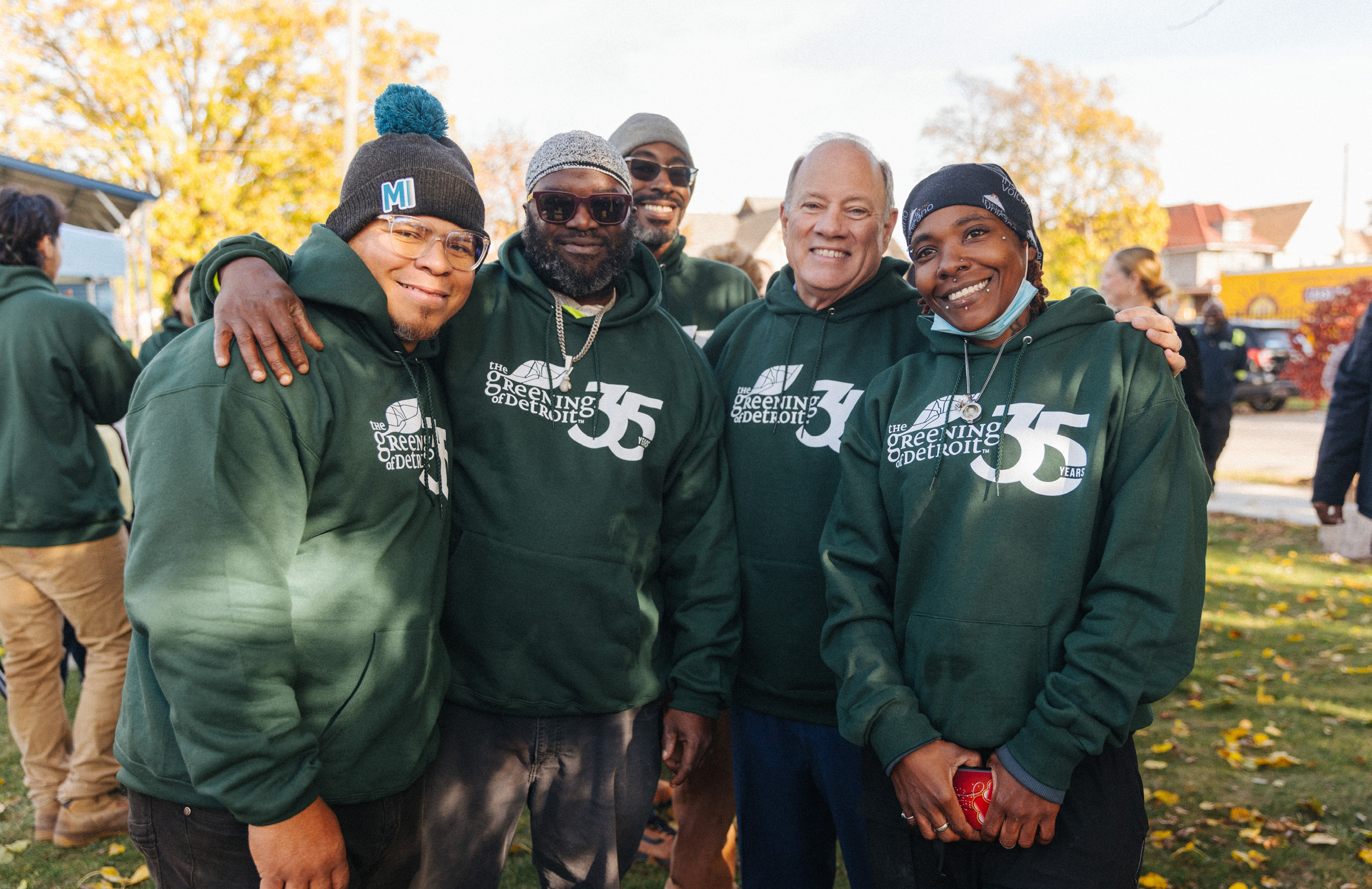
Celebrating in the McDougall-Hunt neighborhood, the City of Detroit celebrates planting 25,000 trees with the Detroit Tree Equity Partnerships including the Greening of Detroit and DTE. The partnership plans to plant 75,000 across Detroit neighborhoods by 2027.
STRATEGIC NEIGHBORHOOD FUND
The Strategic Neighborhood Fund's success spurring inclusive economic growth shows the transformative impact that can come from taking a highly-targeted and collaborative approach to neighborhood investment…to ensure that prosperity reaches every corner of our city.
—Laura Grannemann, Executive Director, Gilbert Family Foundation
The Strategic Neighborhood Fund (SNF), first established in 2017, is a partnership among the City of Detroit and other philanthropic groups to invest in Detroit neighborhoods. The goal is to make them more attractive to residents and businesses by upgrading parks, improving commercial corridors and creating more affordable housing.
In its first two rounds, SNF raised $75 million and leveraged a total of $262M in new investment across 10 neighborhoods. At least another $23 million has been committed to a third round of neighborhood investment.
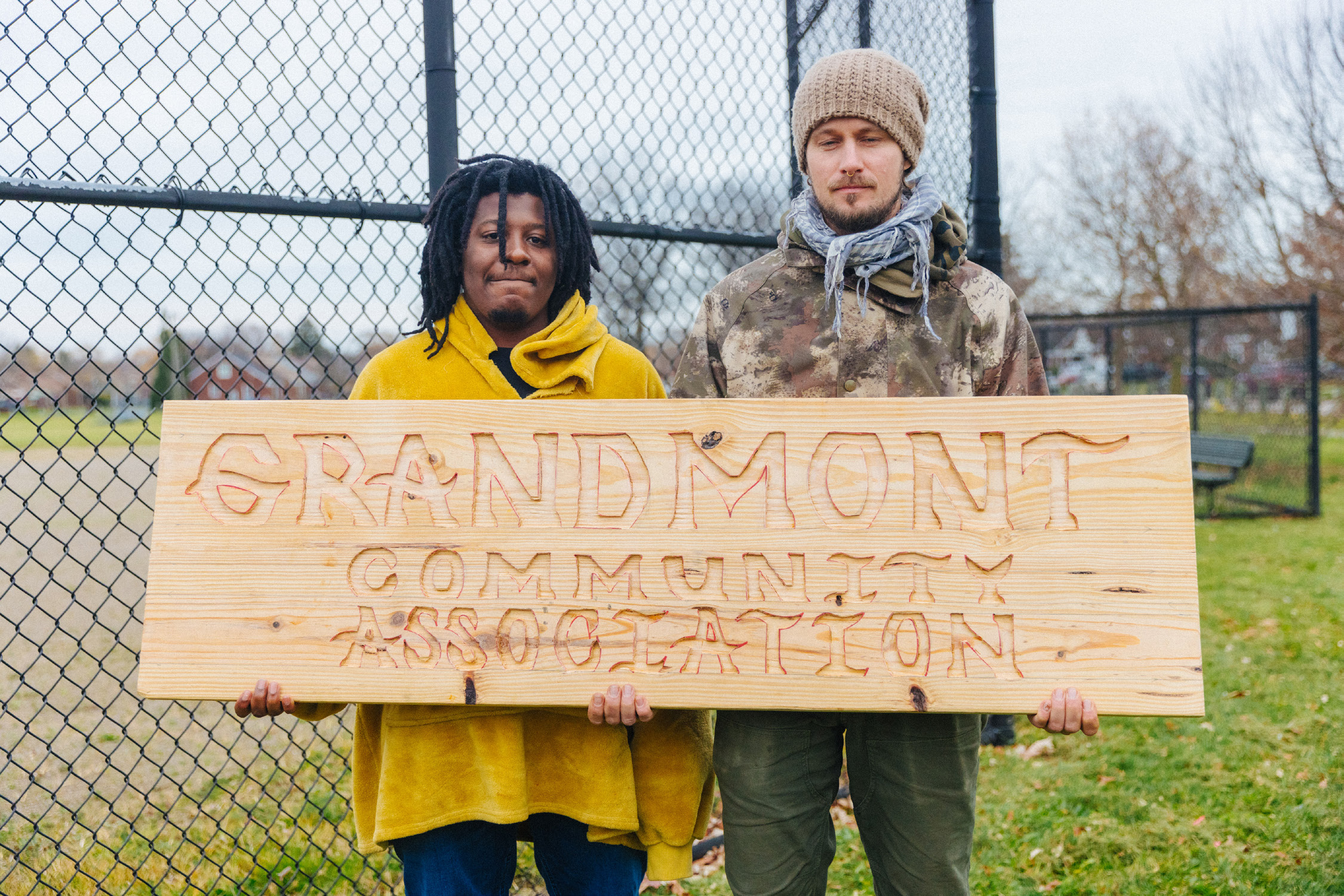
Detroit boosts neighborhood pride with its Gateway Sign initiative that aims to install signs in 65 communities. Neighbors control the design, choosing from more than 270,000 options, 39 colors and 10 shapes. Each sign will announce the community's name, slogan alongside the city logo and Detroit flag.
CONNECTING COMMUNITIES THROUGH BEAUTY
Economic prosperity doesn't happen overnight, but through collaboration between the public, private, and philanthropic sectors, we're seeing revitalized commercial corridors and empowering entrepreneurs to turn their dreams into reality.
—Eric Phamdo, program officer at the Ralph C. Wilson, Jr. Foundation
JOE LOUIS GREENWAY
Another way the City of Detroit is helping neighborhoods is the Joe Louis Greenway, a nonmotorized pathway that connects communities around the city with parks and other amenities. The neighborhoods were extensively consulted through public meetings and neighborhood events.
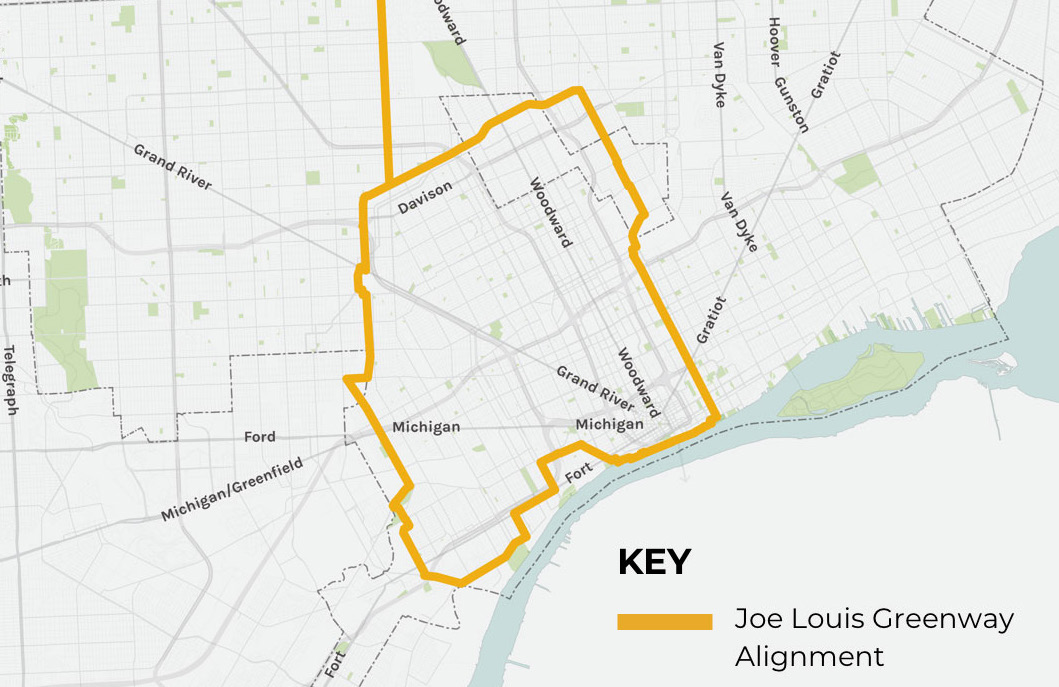
Detroit residents collaborated during community planning meetings for the Joe Louis Greenway, contributing ideas and feedback to help shape the connected, accessible trail system that connects neighborhoods to each other and downtown.
Residents near the newly constructed four-acre, $6 million Warren Gateway Trailhead park on the Detroit-Dearborn border asked for and received a pavilion for community meetings, along with a playscape, (two connected towers and the tallest—27 feet—tube slide in Michigan) and other amenities.
Residents in the Midwest-Tireman (West Warren Avenue to Joy Road) neighborhood wanted their history preserved and their neighborhood's stories told, so the city put up interpretive signs based on oral histories.
The Midwest-Tireman neighbors also helped design six murals along the greenway with local artists to represent its Black, Latino and Middle Eastern populations.
STREETSCAPES
The Detroit Streetscape program beautifies neighborhood business corridors, such as the Livernois Avenue of Fashion, so existing and new businesses can thrive. Infrastructure improvements also make them more welcoming and accessible to all modes of transportation, including walking and biking.
OTHER PROGRAMS
- Detroit Solar Neighborhoods Initiative: Vacant land in five neighborhoods will have solar panel arrays installed to generate enough electricity to power all of Detroit's municipal buildings. Remaining neighborhood residents receive energy efficient upgrades for their homes.
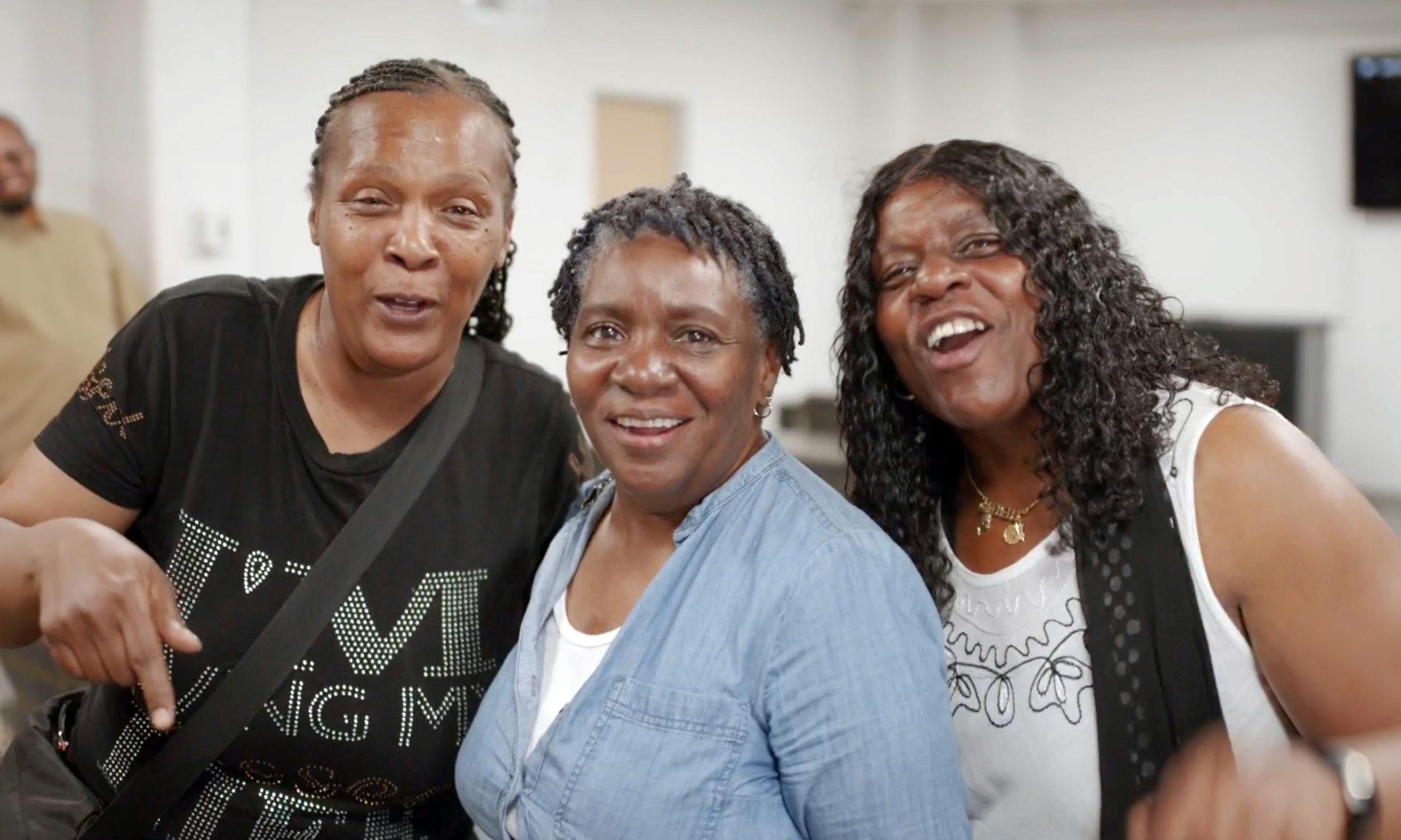
Gratiot–Findlay residents gather at a community meeting to shape the future of Detroit's five Solar Neighborhoods through collaborative planning as well as defining home energy upgrades.
- Halloween in the D: Since 2018, more than 30,000 Detroit youths and their families have participated in trunk-or-treat events at Detroit's police precincts, fire stations and recreation centers. More than a million pieces of candy have been distributed. Volunteers welcome.
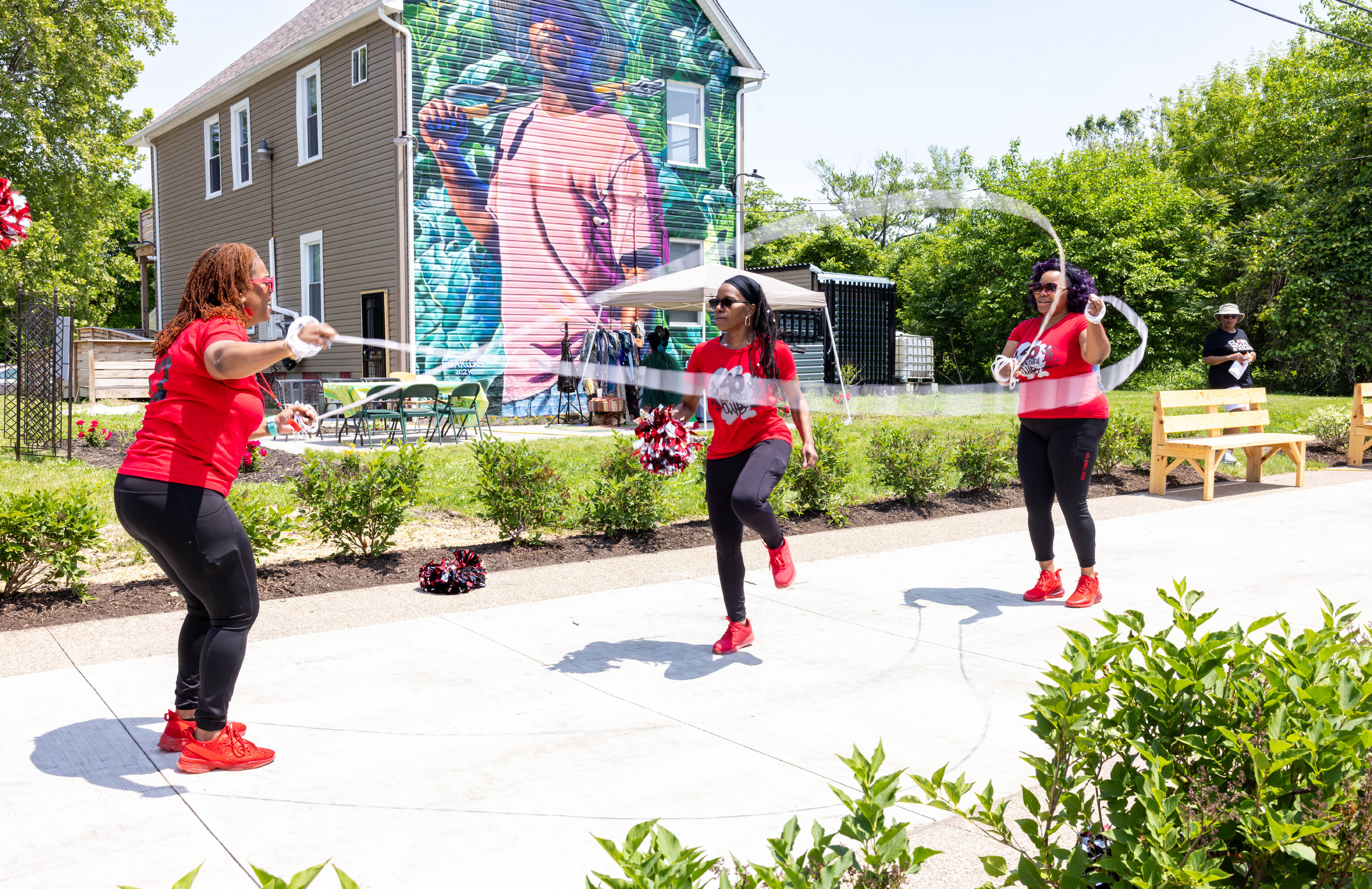
Detroit's Office of Arts, Culture and Entrepreneurship commissioned 47 artists to celebrate local culture and enhance community pride in nine alleys across Detroit. These jump ropers are celebrating a new mural in their North End neighborhood.
- Saturdays in the D: Launched in 2019, the summer program features free enrichment activities for youth plus workforce-focused workshops and certificate programs for adults. Open to residents of Detroit, Hamtramck and Highland Park. Sign up for the email list.
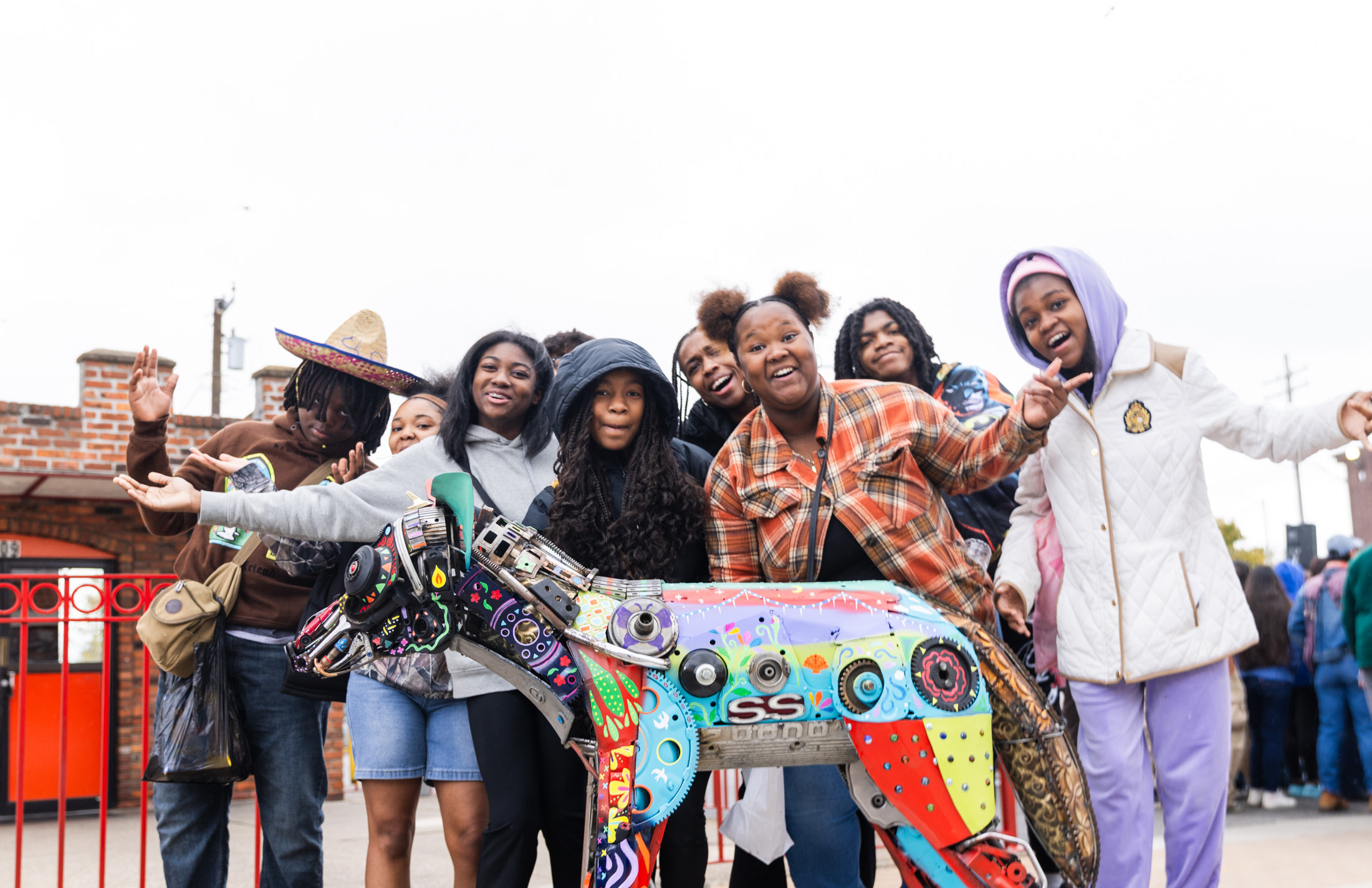
Youth from Detroit's Southwest side gather around a community-made sculpture during a City Scape program event—part of a neighborhood initiative that shapes public spaces by fostering youth engagement.
- Youth Affairs Team: Founded in 2023 and officially launched in 2024, this dynamic, youth-led initiative connects Detroit residents ages 18-25 with valuable resources and career opportunities, to attract and retain young talent to Detroit while amplifying their voices.
One example is the 2025 Shadow Program that paired young people with City of Detroit professionals for a one-day immersive hands-on experience in health, urban planning, business and media.
Detroit's downtown development is important to its past, present and future, but its true health and heart is within its neighborhoods. Detroit listened to its residents, made city government accountable and responsive, transformed blight into beauty and took care of the residents who stayed and made Detroit's resurgence possible.